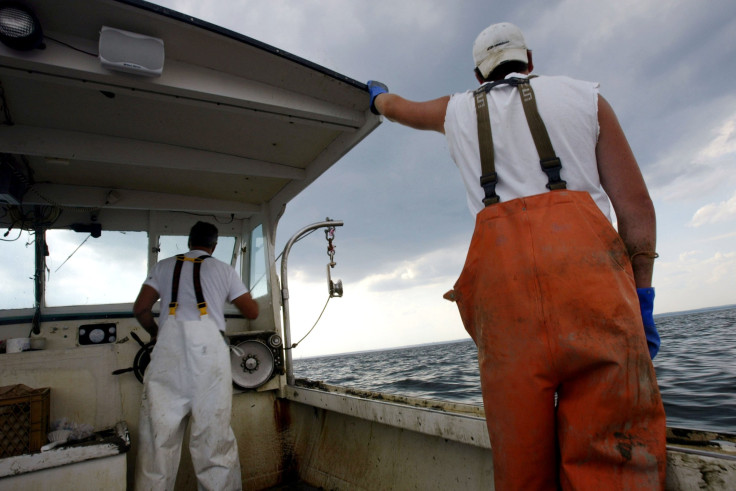US Border Agents Question Canadian Fishing Crews About Immigrants In Disputed Waters

The Canadian government is now investigating reports that say two fishing vessels of the country were approached by the U.S. Border Patrol and the fishing vessels’ crew were questioned in Canadian waters, according to CBC News.
The incidents were thought to have occurred in the Gulf of Maine on June 24 and 25 in the disputed waters around Machias Seal Island and North Rock, according to Global Affairs Canada, the report said.
On Wednesday, John Babcock, a spokesman for Global Affairs Canada said, “Canada continues to investigate these incidents that occurred in Canadian waters, including through engaging with U.S. agencies involved in the matter,” Reuters reported.
The larger contexts of these incidents might involve a little-known cross-border dispute that’s been stewing since the late 1700s, which according to the Star, has now begun to bubble over.
Sovereign jurisdiction over the island is claimed by both Canada and the U.S. Machias Seal Island is east of Maine, and about 19 kilometers away from Canada’s Grand Manan Island. The very flat island is a treeless rock and solely hosts a lighthouse manned all-year-round by two Canadian Lightkeepers. Apart from them, its only residents are a colony of puffins.
The waters that surround the island, at the mouth of the Bay of Fundy, in the Gulf of Maine are also disputed. In recent times, these waters have yielded lucrative catches of lobster, further intensifying competition between fishermen over the past decade. Lobstermen from both countries fish the approximately 700 kilometers surrounding the island, referred to as a gray-zone.
According to Babcock, “Canada’s sovereignty over the Machias Seal Island and the surrounding waters is long standing and has a strong foundation in international law.”
“Until the matter of the boundary is resolved, we will continue to take practical steps with the U.S. to ensure that the area is well-managed. Canada and the U.S. have a long history of co-operation which ensures that fishing in this area is well-managed and safe for both countries,” he added.
According to Laurence Cook, chairman of the advisory board for Lobster Fishing Area 38, Canadian vessels were boarded by American agents and the crew questioned about possible illegal immigration.
“There’s been a bit of a misunderstanding there somewhere,” Cook said Wednesday, the Star reported. “They’re in international waters, so border patrol shouldn’t be boarding Canadian vessels.”
Cook, in fact, said border agents have stopped at least 10 fishing boats over the past two weeks. CBC News confirmed two of those instances with Global Affairs Canada.
A statement by the Grand Manan Fishermen's Association said: “We understand that a few Grand Manan fishermen were approached by the United State Border Services during the month of June. Our understanding is that this was a part of a regular exercise being conducted along the U.S. marine border.”
According to the Star report, at first the U.S. Border Patrol, as part of the nation’s Customs and Border Protection, declined commenting on the issue referring any inquiries be made to the U.S. State Department, who did not respond to an interview request.
Late Wednesday, however, U.S. officials told CBC News there were border agents in the area to "enforce immigration laws and other violations of federal law."
The U.S. Customs and Border Protection statement pointed out boating violations are not the purview of Border Patrol, rather of the country’s Coast Guard.
© Copyright IBTimes 2024. All rights reserved.






















